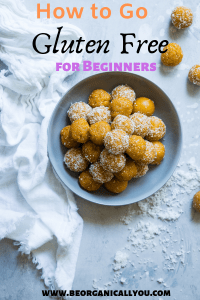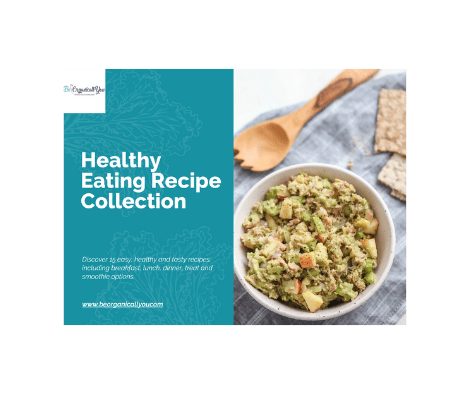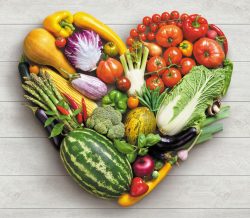2020 Guide for A Happy and Gluten-Free Life
Gluten-Free for Beginners
Gluten-Free Diets
Gluten-free diets are all the rage these days. There are many reasons why people may choose to go gluten-free – from a reduction of uncomfortable digestive issues to simply seeing it as a way to get healthier and lose weight.
As with any eating plan, it’s very easy to make mistakes. These mistakes can end up rendering the diet useless. So, in this article, we are going to look at four mistakes that you are making with this diet and how best to avoid making those mistakes.
1) Assuming that just because something is gluten-free, it is also healthy
A big mistake that many people make when starting this diet is seeing the sign that says “gluten-free” and assuming that it means it is healthy for them. This may have been true once upon a time, but because of the popularity of these diets and lifestyles, plenty of things are now being advertised as gluten-free.
You can find gluten-free cupcakes, cookies, chocolate, etc. A wide array of foods that would traditionally be considered no-no’s in a traditional diet are now being marketed as not containing gluten. But, just because they are there is no gluten does not mean that you are able to indulge in them willy-nilly.
It is easy when you are following this diet to assume that “gluten-free” is essentially another way of saying “this is healthy for you,” but rest assured that it is not. Just because something is does have gluten does not mean that you can just indulge in it whenever you want. When following a gluten-free diet, you should still be focused on cutting calories, eating vegetables, fruits, and low-fat proteins; just like you would be on a regular diet.
The way to avoid this is to simply realize that a gluten-free diet is just like every other diet. You need to count calories and you need to watch what you eat. Do not get into the habit of eating things just because they are labeled as “glutenfree.” If you plan on trying to lose weight while following a gluten-free diet, then you should also be using some sort of aid to help you keep track of things like calories and fat.
2) Not getting enough vitamins and nutrients
As part of a gluten-free diet, you will be cutting out a lot of grains from your diet. However, it isn’t always worth cutting gluten out of your diet unless you need to, because whole grain bread is full of nutrients and vitamins that the body needs. For example, vitamins A and E, both of which are very important vitamins, are found in whole-grain bread.
Vitamin A is vital for the functioning of various systems of the body, including your immune system, your circulatory system, and your kidneys. Likewise, vitamin E is essential for things like your vision and for protecting your cells from damage. So, needless to say, you want to make sure that you are receiving both of these vitamins.
Another thing that you need to be concerned with is protein. Some gluten-free diets can be relatively low in protein when compared with diets. Protein is extremely important for building muscle, skin, bones, etc. Protein deficiency is a real issue that those on gluten-free diets need to be concerned about.
So, if you are on a gluten-free diet, then you need to make sure that you are getting the essential vitamins and nutrients that you might otherwise be missing out on – and thankfully this is possible! A good way to do this is to increase your intake of fruits and vegetables, which tend to be great sources of various vitamins and minerals.
You can also replace the lost vitamins and minerals with supplements. Supplements exist for almost every essential vitamin and nutrient, so you can easily find supplements to help you make up for the nutrients you would otherwise lose.
3) They are not aware of cross-contamination
People with food allergies have to avoid certain kinds of food, or else they risk suffering a severe allergic reaction. Since using the same utensils and cooking equipment to cook food with allergy-causing ingredients can result in an allergic reaction, people with allergies have learned to be cautious about cross-contamination. Now, you may think that does not apply to someone a gluten-free
diet, but you would be wrong.
Cross-contamination is a real issue that people on strict diets, like gluten-free diets, need to be aware of. If you primarily do your own cooking, then you do not need to be concerned about cross-contamination. But, if you eat out at restaurants a lot and/or if you have someone else in your house who does not follow a gluten-free lifestyle, then cross-contamination becomes a much bigger issue.
The way to avoid this is to be extra cautious when out. Restaurants may have gluten-free options available, but unless you specifically mention that you are not allowed to eat gluten, then they may not go to the trouble of using different utensils. If you specifically mention to your server that you are on a gluten-free diet, then usually most restaurants will be willing to accommodate you. When it comes to home cooking, the solution may be to buy separate cooking tools and clearly label them “to be used with gluten” and “gluten-free.”
4) They forget that gluten is in non-food items
We all know that gluten is in food items, but most people are probably not aware that gluten can be found in non-food items as well. Now, you may be wondering why this matters; after all, if they are not in food items, then you do not need to worry about them right? Well, the problem with that line of thinking is that many of these non-food items do get absorbed into your body.
For example, oral hygiene products like toothpaste and mouthwash can contain gluten. Likewise, certain beauty products, like lipstick, can also contain gluten. Sure, you are not eating any of these products, but anytime you put something in or near your mouth, you probably swallowing a small amount. If the product contains gluten, then you risk swallowing gluten.
Thankfully, it is very easy to avoid this mistake. You simply need to become very diligent when it comes to reading nutritional labels. Before you use any product, check to ensure that the product contains absolutely no gluten. In general, if you plan on following an extremely strict diet, like a gluten-free diet, then it is a good idea to always read the nutritional labels before you eat something or before you use a product.
Be happy. Be healthy. BeOrganicallYou!




